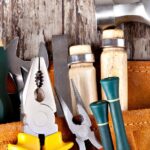Whether you’re a new homeowner or have been managing your household for years, understanding the basics of plumbing maintenance is crucial. A well-maintained plumbing system ensures the smooth functioning of your home and helps prevent costly repairs. In this guide, we’ll explore essential tips and tricks to keep your plumbing in top shape.
Regular Inspection and Maintenance
1. Check for Leaks
Regularly inspecting your home for leaks is a fundamental aspect of plumbing maintenance. Leaks can lead to water damage, mold growth, and increased water bills. Check for dripping faucets, water stains on walls or ceilings, and pooling water around fixtures. If you discover any leaks, address them promptly to prevent further damage.
2. Inspect Pipes
Periodically inspecting your plumbing pipes is crucial for identifying potential issues before they escalate. Look for signs of corrosion, rust, or visible damage. If you notice any problems, it’s advisable to consult a professional plumber for a thorough inspection.
3. Clear Clogs
Clogged drains can lead to slow water drainage and, if left unattended, may cause more significant issues. Use a plunger or drain snake to clear minor clogs. Avoid using harsh chemical drain cleaners, as they can damage pipes over time. For persistent clogs, consider hiring a professional plumber to assess and resolve the problem.
Seasonal Plumbing Maintenance
4. Winter Preparation
Winter can be harsh on your plumbing system, particularly in colder regions. To prevent frozen pipes, insulate exposed pipes in unheated areas, such as basements and crawl spaces. Disconnect garden hoses and shut off outdoor water valves. If you’re unsure about winterizing your plumbing, seek guidance from a reputable plumbing service like https://marcoplumbing.ca/.
5. Summer Plumbing Tips
Summer brings its own set of challenges for plumbing. Inspect outdoor faucets and sprinkler systems for leaks. Ensure that your sump pump is functioning correctly to prevent basement flooding during heavy summer rains. Consider scheduling a professional plumbing inspection before the summer months to address any potential issues.
Plumbing Fixtures and Appliances
6. Maintain Water Heater
Your water heater plays a crucial role in providing hot water for various household activities. Flush the tank annually to remove sediment buildup, which can affect its efficiency. Check for any signs of rust or corrosion and replace the anode rod if necessary. If you encounter issues with your water heater, consult a professional plumber to assess and repair the problem.
Care for Your Garbage Disposal
Proper maintenance of your garbage disposal can prevent unpleasant odors and costly repairs. Avoid putting non-food items, fibrous materials, and grease down the disposal. Run cold water while using the disposal to help break down food particles. Regularly clean the disposal by grinding ice cubes and citrus peels.
Emergency Preparedness
8. Know Your Shut-Off Valves
In case of a plumbing emergency, it’s essential to know the location of your shut-off valves. Familiarize yourself with the main water shut-off valve as well as individual shut-off valves for sinks, toilets, and appliances. Being able to quickly turn off the water supply can prevent extensive water damage in emergencies.
9. Have a Reliable Plumber on Standby
Despite your best efforts, plumbing issues can still arise unexpectedly. Establishing a relationship with a reliable and professional plumber is crucial. Companies like Marco Plumbing offer emergency services and can provide timely assistance when you need it the most.
Conclusion
By incorporating these plumbing maintenance tips into your routine, you can ensure the longevity and efficiency of your home’s plumbing system. From regular inspections to seasonal preparations and emergency readiness, a proactive approach to plumbing care will save you time, money, and potential headaches down the line. Remember, when in doubt, it’s always wise to consult with a professional plumber for expert advice and assistance.








